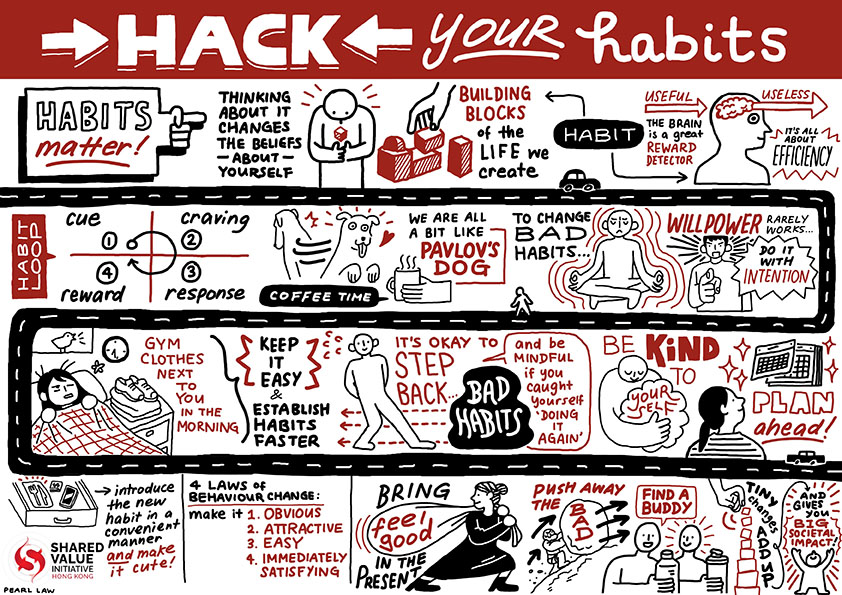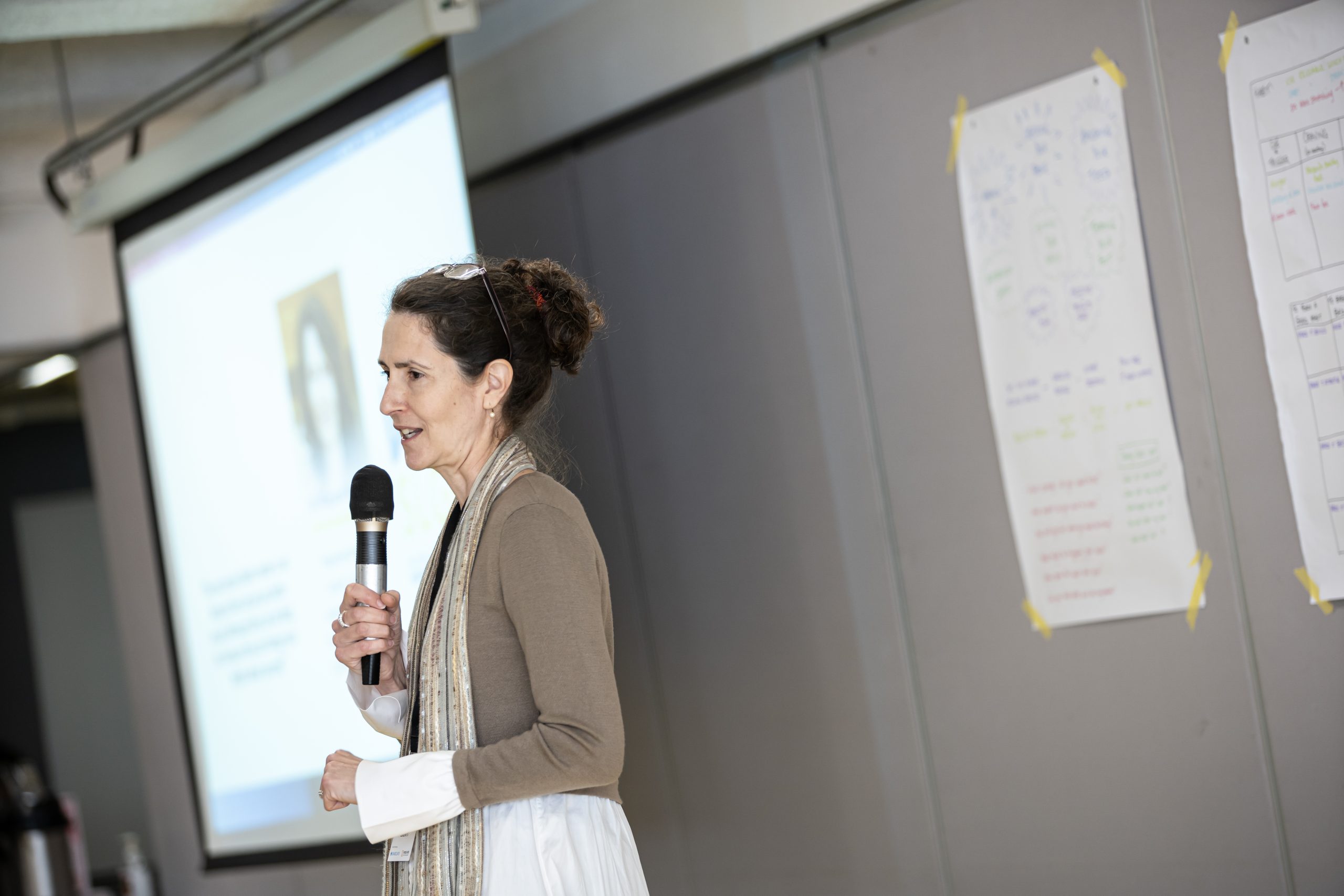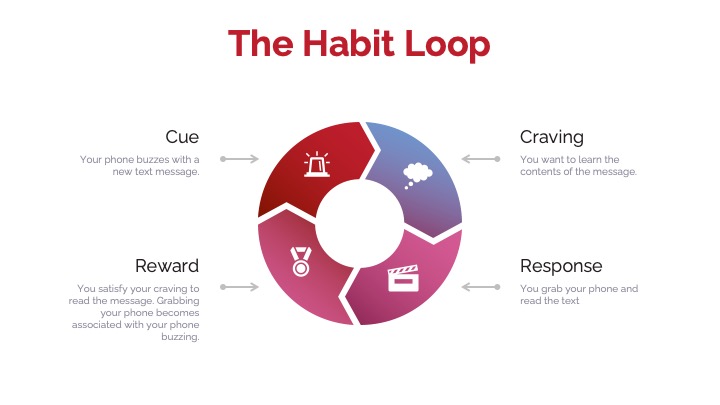Hacking your habits: the starting point to change the world

At CREATIVE COLLISION 2023, Dr. Margaret Burnett, Programme Director for Sustainability Leadership and Governance in the CCSG at The University of Hong Kong hold the Hack Your Habits workshop to help changemakers play their part in driving positive impact. Here’s a summary of key tips and learnings to adopt new sustainable habits.
1. Think of the “cumulative effect”
“Our habits are the building blocks of our lifestyle. Changing those habits can be incredibly transformational”, Dr. Margaret Burnett believes in the power of adopting new habits.
“Plastic pollution, climate change, carbon emission, biodiversity loss… As individuals, we can feel overwhelmed, even paralysed, by the complexity of the problems that we face. By addressing these issues at our level, a little bit at a time, we restore our ability to act and our sense of agency“, explains Dr. Margaret Burnett. Hacking our habits allows us to feel empowered instead of anxious. It’s not the only benefit.
“Small and consistent changes can be incredibly transformational”, insists Maggie. The new sustainable habits we achieve at our level may seem insignificant, but when they add up with others, they lead to a profound and lasting impact.
2. Be mindful of your habits
Even though we want to play our part by joining a movement of change, transforming our habits is not an easy journey. Habits help us perform our daily life efficiently, on autopilot. That’s why they are so difficult to change. According to Maggie, “Becoming more aware of our habits is the first necessary step, then making it an intentional decision to make the change you really want“. Mindfulness techniques – pausing, being in the present – can help.

Photos by Vincent Tsoi, We Image Productions
3. Understand how habits are formed
Every habit – bad, good, or neutral – has been built through the same process. A cue or a trigger prompts a craving for a change of state. For instance, walking in a dark room cues us to be able to see. Then comes our response – flicking on the light switch. The final step in the process is the reward – being able to see our surroundings – that generates a positive feedback loop telling our brain to follow the same path the next time the cue happens. The more we repeat the cycle, the stronger our habit becomes.
4. Break the habit into small components
Instead of considering the new habit as a whole, break it into visible and manageable parts. “If you want to develop healthy eating habits, you may decide what you will eat, when you eat, how you make your food, what food to purchase, and what food to keep in your home…. And so on.”, Maggie explains. For each component, you can then identify concrete, small and manageable changes you need to make to ensure success.
5. Create your action plan based on 4 laws
Once you have broken the new habit down into small changes, build your action plan based on the 4 laws of behaviour change to implement them:
- Make it obvious: Change your environment to encourage better habits and create the stimuli that trigger new habits. Even better, identify a habit you already perform every day and stack your new behaviour on top.
- Make it attractive, as our brain releases dopamine when we anticipate activities that we enjoy. Why not even link your targeted new habit to a behaviour that you enjoy? Like watching your favorite show when you are on the treadmill or exercise with a friend!
- Make it easy: Reduce friction by having all that you need available to run your new behaviour. It should take less than two minutes to start your new habit. “The rule recognises that simply getting started is the first and most important step toward doing something, Maggie insists. Establish the habit first, then improve”.
- Make it immediately satisfying. When trying to build habits that have long-term benefits, try to attach immediate satisfaction to them, like a reward.
“What you do makes a difference, and you have to decide what kind of difference you want to make”
Dr. Jane Goodall, English primatologist
To break a bad habit, apply the exact opposite of the 4 laws:
- Make the cues invisible
- Make the habit unappealing
- Make it as difficult as possible: increase the friction, resist for at least 2 minutes before conceding to the bad habit, and use a commitment device, person, or reminder.
- Make your habit unsatisfying, by rewarding yourself when you don’t do your bad habit for instance.
Forming new habits takes intention and consistency. Try these for yourself first, and experience the change before trying to make change for others. It helps us develop empathy for how difficult it can sometimes be to make change. If you slip back into old habits, don’t be too harsh to yourself. Spend a few minutes in identifying what triggered the slip and don’t wait to start the process again and get back on track. It’s also worthwhile to come back to the original “why” to revive your motivation. Think then at what Nalini, a participant in the Hack Your Habits workshop, says: “Imagine you, but another million people are building the same sustainable habit, it will bring a force of change“.
If this is what we accomplished over five weeks, imagine how much we can save being on a plastic diet for a month, a year, or a lifetime.
Whatever your sustainable new habits might be – eating less meat and fish, using public transportation, or saving water… – don’t forget that you initiate a force of change.

